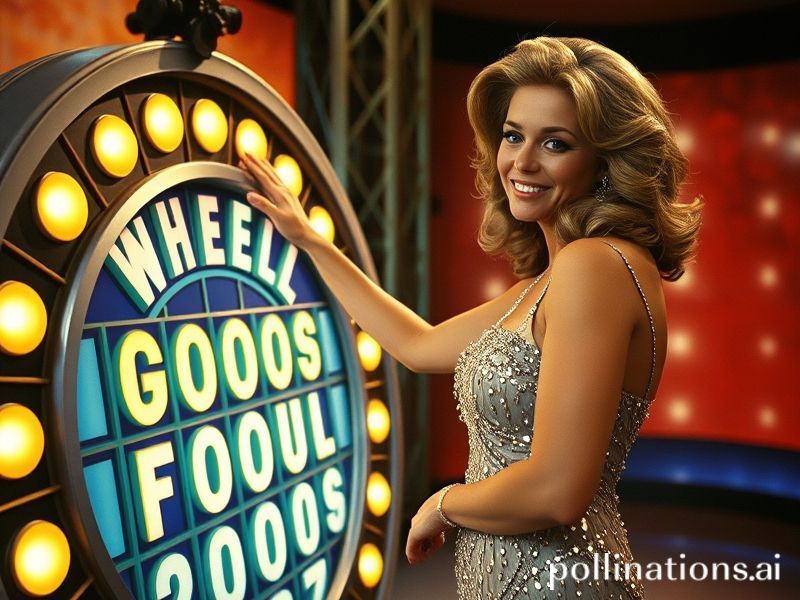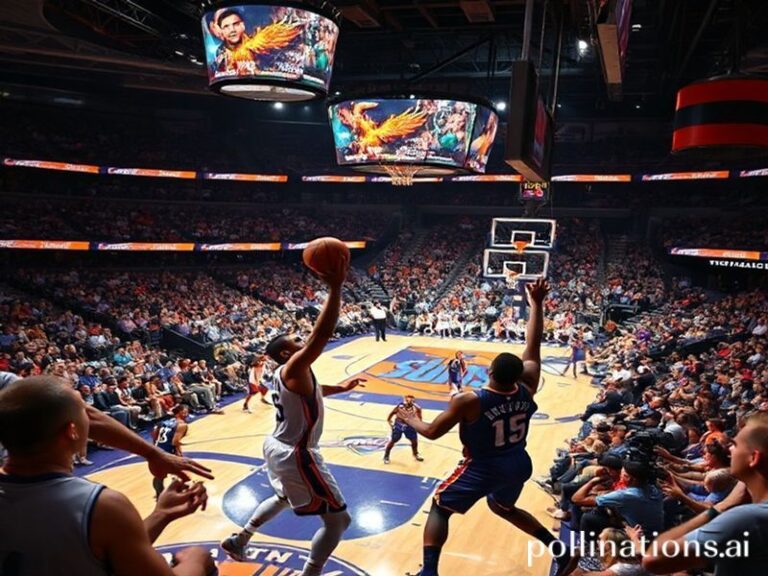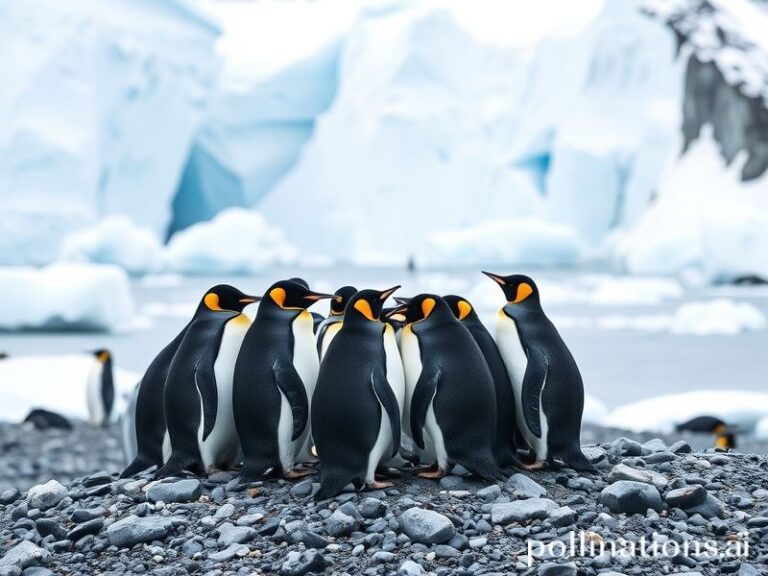Vanna White: The Planet’s Favorite Silent Diplomat Spins the Wheel of Geopolitics
Vanna White, Empress of the Spinning World
By C. Delgado, International Desk, Dave’s Locker
In a world where the nightly news is a roulette wheel of war crimes, climate catastrophes, and crypto scams, there is one immutable fixture: Vanna White silently gliding across a glowing alphabet like a benevolent ghost of late-stage capitalism. From São Paulo to Seoul, from refugee camps to corporate break rooms, her image flickers on screens that also carry grainy drone footage of bombed maternity wards. Somewhere between the two, humanity finds its equilibrium: terror on one channel, consonants on the other.
The woman has touched letters for thirty-eight years—longer than most nation-states have kept their current borders. She has seen the Berlin Wall crumble, the Euro born, TikTok elected as de-facto UN Security Council. Through it all she claps politely when contestants buy ceramic Dalmatians with money that could vaccinate a village. One must admire the stoicism; Caligula would have demanded blood sport, but we get porcelain pets and applause tracks. Progress, sort of.
Globally, her influence is less obvious than McDonald’s, yet more insidious. In Laos, tuk-tuk drivers rig up second-hand flatscreens to pirated satellite feeds just to watch her turn the letter “Q.” In Lagos nightclubs, DJs splice her trademark dress-swish into amapiano beats—an accidental soft-power export funded by American daytime ad rates. Even the Kremlin’s propaganda channel once supercut her clapping over images of wheat harvests, presumably to reassure pensioners that abundance is just a vowel away.
The French, naturally, despise the show on principle; they call it “la loterie bourgeoise de l’orthographe.” Yet the Eiffel Tower’s nightly sparkle uses the same LED technology that illuminates her puzzle board, so they partake regardless. Meanwhile, Chinese streaming services quietly license the format as “Happy Lucky Rotate Board,” scrubbing any mention of bankrupt wedges to avoid giving citizens unhelpful metaphors. When Beijing censors are editing you for ideological safety, you have officially become geopolitical contraband.
Economists at the IMF—between Zooms about debt default—have tried to quantify the “Vanna Effect.” They found that countries airing Wheel reruns during hyperinflation saw a 3% uptick in consumer optimism; apparently watching someone win $600 and a trip to Belize beats staring at your wheelbarrow of worthless pesos. The World Bank briefly considered shipping solar-powered TVs to crisis zones, then remembered that the same devices could also broadcast revolution. Bureaucracy: always two consonants short of a solution.
Her wardrobe alone is a United Nations of textile diplomacy: dresses stitched in Vietnam, sequins mined in Rwanda, zippers forged in Germany, all assembled in a factory just outside Phnom Penh. Each gown travels more air miles than the average climate activist. When Greta Thunberg tweets about carbon footprints, Vanna’s sequined train emits a soft rustle of apology but keeps gliding. After all, the show must go on; the planet, apparently, is optional.
If you think this is overanalysis, remember that in 1996 the U.S. Army studied Wheel of Fortune’s pacing to improve battlefield communications. (“Soldiers process intel better when it’s chunked into 22-minute segments with commercial breaks.”) Somewhere in a classified Pentagon annex there is a white paper titled “Leveraging Vanna’s Clap Rate for Tactical Morale.” We paid for it with taxes; feel free to weep.
And still she smiles, the Mona Lisa of late capitalism, forever 36 thanks to retouching and soft lighting. She has transcended mere celebrity to become a planetary metronome: click, clap, reveal; click, clap, reveal. In boardrooms and bomb shelters alike, that rhythm reassures us that somewhere, somehow, the wheel is still spinning and someone—anyone—might still get the answer before the bankrupt wedge hits.
Conclusion: Vanna White is not just turning letters; she is rotating the very axis on which the modern world precariously pirouettes. While diplomats bluster and glaciers retreat, she offers the globe’s most honest transaction: thirty minutes of collective pretending that fortune favors the cheerful. It’s a bargain most nations are still willing to make—right up until the final spin lands on “Lose A Turn.” Then we remember the joke is on us, has always been on us, and clap anyway.







